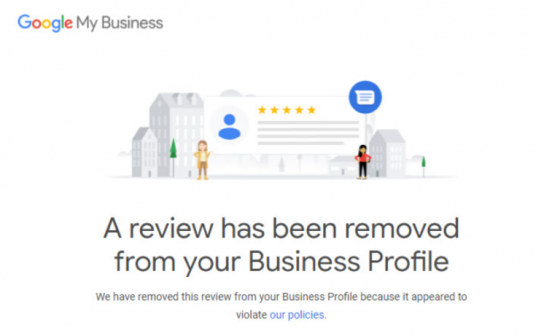Even if you’re keeping track of developments in the tech industry, it’s hard to grasp exactly where our technology is going. Since the pandemic, the speed of innovation and change has multiplied as the digital revolution solidified its footing. Now, more people than ever are utilizing new technologies to aid them with everyday tasks: everything from ordering groceries to using augmented reality shopping experiences. With all the innovations, one clear theme rings true: convenience. And for social media users, AI tools are changing the game.
Artificial intelligence tools are slowly being adopted by the zeitgeist. From testing out image generators to creating writing prompts, AI tools are catching the attention of the masses. And for social media marketers – they’re slated to be a game changer. AI in social media will transform the way how brands market across platforms like TikTok, Snapchat, Instagram, LinkedIn, and more.
Let’s look at how AI tools are already revolutionizing social media content.

Using AI tools to create social media content
AI is already having a huge impact on social media. It can:
- Create social media posts for you
- Draft and target social ads
- Automate monitoring
- Power analytics on the back end
With all these capabilities, it’s no surprise that the “AI in social media” market is projected to grow from $633 million in 2018 to more than $2.1 billion by 2023, according to estimates from Markets and Markets.
But AI isn’t just some buzzword. It’s real technology that social media marketers can use today to get incredible results.
AI-generated content has the potential to revolutionize the way brands approach social media marketing. By leveraging AI’s intuitive ease and production power, businesses can create personalized, engaging content at scale. AI-generated content will undoubtedly save time and resources – while enabling brands to effectively reach and grow their target audience.
For social media marketers, using AI for social media is a game changer.
Using AI tools for social media improves targeting and personalization
We already know that one of AI’s best features is its ability to target demographics and personalize messaging to individuals – like how it creates personalized news feeds for users. By analyzing data such as location, interests, or engagement, AI algorithms can create customized content that resonates with specific audiences. This level of personalization can lead to higher levels of engagement and conversions, as users feel that the content is tailored specifically to them.
This can be used by brands, too. By feeding AI tools specifics about your targeted audience and personas, you can easily create personalized content for a variety of customers.

AI tools are efficient and cost-effective
Scaling high-quality content production takes a lot of time and resources. By using AI to automate content creation, brands can save time and money. Of course, AI tools are best used to create drafts or outlines. Search engines like Google are getting better and better at detecting AI-generated content; save your future self the hassle by not copy and pasting directly from your tool! Plus, your editing will add your brand’s signature flair and voice.
By offloading some of the content creation work to AI tools, marketers can focus on strategy and analysis – rather than constantly pumping out new content.
AI-generated content has the potential for more reach and impact
Social media is built on AI. Nowadays, algorithms on sites like TikTok are so spot-on that many users joke (or legitimately worry) that their phones may be listening to them. While that’s not actually the case, it goes to show just how smart social media algorithms are. In fact, TikTok’s ability to surface great, helpful content has led many users to use TikTok as a search engine.
With the increased accessibility of AI tools, brands can use AI to generate content that resonates with their specific audience. After all, it’s the same technology that curates all of our algorithms. So, brands can use the same tactics on their end, using AI to create engaging, relevant content.
On the back end, AI provides better data analytics and insights
AI can analyze data from social media interactions in real-time, providing valuable insights into a brand’s audience. Using AI to analyze comments and reviews is already pretty common – tools like Synup already have sentiment analysis built in! So the technology shouldn’t seem that unfamiliar. And although AI can be a powerful social listening tool, don’t forget to use your human team to engage with your audience.

Data aside, should you actually use AI-generated content on your social media pages or website? AI-generated content will never have the same recognition and authenticity as human-created content precisely because it is data-based. Humans have experience, empathy, and humor that AI can’t exactly copy. But let’s not be too hasty on the authenticity judgment…
Can AI-generated content still be authentic?
Even with all the benefits of AI-generated content, it might seem silly to use AI tools for social media. After all, isn’t social media supposed to be “authentic”?
Authenticity is a key when it comes to building trust and engagement with audiences – especially on social media.
It’s important to recognize that social media is inherently inauthentic. The curated, filtered, and carefully-crafted images and messages that we see on platforms like Instagram and Facebook are often not an accurate representation of real life. But this isn’t a bad thing – social media provides an opportunity for people to present the best version of themselves. The same is true for brands: businesses can curate their online image however they please. While this is sometimes demonized, it’s not a bad thing. In fact, it’s made it so that authenticity on social media is often about presenting a genuine, authentic message in a polished, professional way.
Using AI to create genuine, authentic content
In the context of social media, AI-generated content can definitely be authentic. The key is to ensure that the ideas and messages being generated by the AI are based on genuine insights and ideas.
For example, AI is perfect for sentiment analysis: taking customer comments and reviews and identifying common themes. From there, the AI tool could use sentiment analysis to generate content that speaks to the needs and desires of the brand’s audience. This is basically what marketers have been doing for decades, just with more efficiency and less margin for error.

Of course, when your goal is to create authentic content, it’s crucial to consider the tone and style of AI-generated content. As we noted above, AI is excellent for creating content that engages and targets specific audiences. Customers love to feel seen and heard – and nothing fosters authentic connection quite like understanding. After all, the AI tools are just doing what marketers have done for decades: analyzing and catering to their audiences.
As long as it is based on real insights and ideas, AI-generated content is as authentic as human-generated content. And by leveraging the power of AI, brands can create personalized, targeted content that resonates with their audience, building trust and engagement on social media.
AI will become more incorporated into social media – whether we like it or not
Whether or not you want to consume AI-generated content or think it’s authentic, it seems to be here to stay. The recent widespread accessibility of AI tools has enabled the technology to spread like wildfire.
It’s great that AI tools invite accessibility and ease into our lives, but to maintain the authenticity of human interactions, be wary of how you incorporate AI tools into your arsenal.
One thing is for sure: AI is here to stay! See how we use AI for social media marketing in our new social media management tool, Synup Social.


